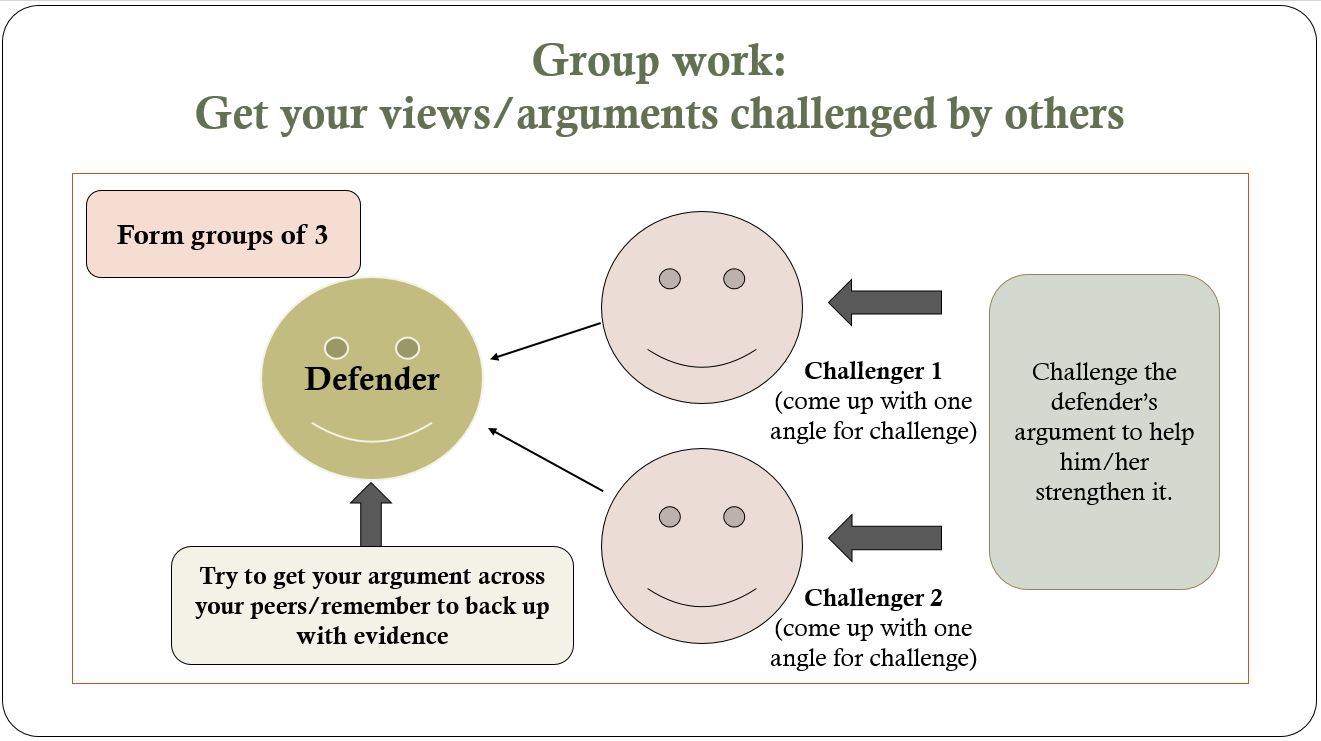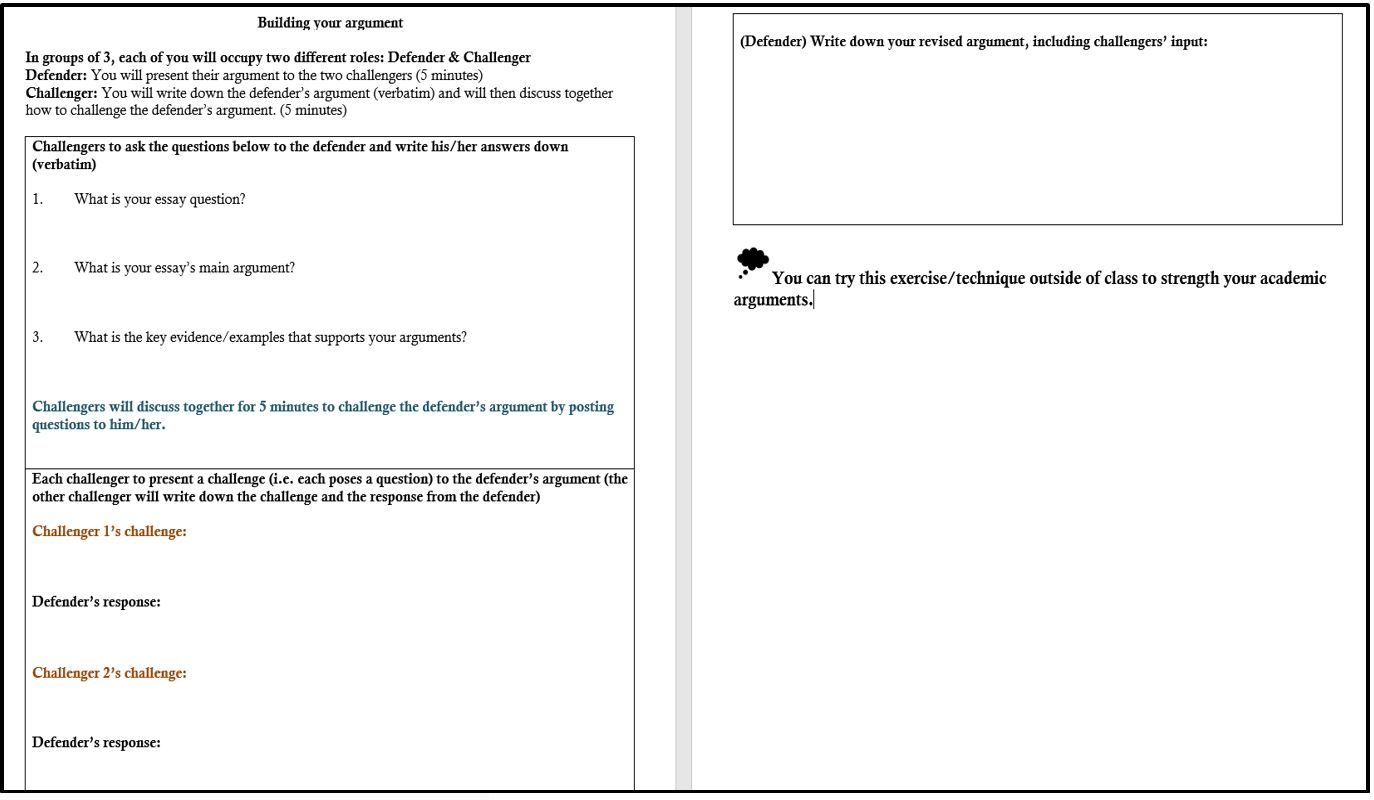This #Take5 blogpost has been produced by Dr. Tiffany Chiu and Dr. Olga Rodríguez Falcón
This project was conducted at UEL 2017, where we intended to address a growing concern over student transferable academic skills for employability in higher education. It aimed to implement and evaluate a dialogic approach to embedding academic literacy skills into the subject curriculum. As researchers and practitioners in higher education, we have observed that, very often, students have found it challenging to generate ideas/strong arguments for their assignments and present them logically in writing. We devised a range of writing exercises which are informed by a dialogic pedagogy and the connections between speaking and writing to foster the development of student academic voice and authorial identity.
Specifically, we engage students in actively discussing their academic ideas around assessments both in and out of class, audio-record these discussions and play them back for selective transcription, which can be used as a base for further development of their written coursework. The uses of dialogic approaches and speaking-writing relationships are derived from our experiences as well as informed by the existing literature where we believe dialogic interaction within a collaborative environment provides an excellent platform for students to construct meaning and generate strong arguments which hence improves their writing ability.
One of the examples of our exercises is as follows:

Diagram 1 Exercise – Strengthen your arguments
The exercise, as shown in diagram 1 above, was designed to support student essay writing. In many cases, students are either given an essay question or offered a limited choice from a list supplied by the tutor. To help them create and strengthen their arguments, we have found it extremely useful for students to get their ideas challenged by others and be able to articulate them clearly through interaction. In this exercise, we form students into groups of two or three with roles of defenders (those who put forward their argument(s) towards their given/chosen essay question) and challengers (those who try to provide counter-arguments towards their peers’ arguments).
The exercise sheet given to students is as follows:

Diagram 2: Exercise sheet: Strengthen your arguments
As can be seen from the exercise sheet above, there are three stages. First, we advise students as challengers to ask questions of the defenders about their essay question and arguments/evidence towards it. During the questioning, challengers need to record defenders’ responses as detailed as possible in writing. We also encourage students to make good use of their digital devices such as smartphones or tablets to record the discussion. After this, challengers are given time to come up with counter-arguments to challenge defenders’ ideas. Again, the discussion will be recorded both in writing and audio. Finally, defenders will revise their arguments based on the recording and discussion notes taken by their challengers. This revised version will serve as the first step for drafting their essay.
Even though debates are already a much-used teaching strategy in the higher education sector, these spoken-to-written activities have helped students to make more direct connections between their own speech and writing. During the exercises, students soon realise that they have come to university with a wealth of prior linguistic resources they can tap into to develop their academic voice when writing.
These are some of our students’ comments during focus group discussions:
I just felt like after doing the activity, I was able to put my ideas down in writing much easier than I did the first time. I had a better understanding of what I wanted to say in writing after it.
When you discuss it, it’s a bit like rewriting it. Saying it out and listening to yourself and getting an opinion … give you more ideas or things you skipped that you wouldn’t necessarily remember. But it’s when it’s being discussed, then you have more ideas…
With the first stage when you’re writing it yourself, you kind of just do basic bits, but when you’re doing the interview, it helps you expand it more. And you also think of more things to add as well, because you’re sort of just rolling off the tongue.
These exercises can be easily adapted to use during seminars to support student writing – for learning and for assessments. We have many other examples of spoken-to-written activities tailored to different types of assessments, such as research reports or visual analysis. Other exercise sheets we have created can be accessed here: <https://drive.google.com/drive/folders/1AF9cAecMbcfl_npSKtTs9iLwwrcxv18a> and include:
- Critical reading and writing
- Research proposal writing
- Research project writing
- Paraphrasing
- Visual analysis.
If you would like to know more about how we do these exercises in class, please feel free to contact us. We are happy to share more!
Biographies
Dr. Tiffany Chiu is a Teaching Fellow in Educational Development at Imperial College London. She supports students and staff across disciplines to enhance learning, teaching and assessment practices. She has a PhD in Academic Language and Literacy. Tiffany’s teaching and research interests include learning and teaching in higher education, assessment and feedback practice, and academic literacy development.
Email: t.chiu@imperial.ac.uk
Dr. Olga Rodríguez Falcón is an Academic Writing Tutor at the University of East London. In her role, she teaches academic literacies to support students’ transition to university study and their later writing skills development. She is also an active researcher on the student experience in the tertiary education sector, with a focus on academic literacies.
Email: o.rodriguez-falcon@uel.ac.uk

Some great stuff here, thanks for sharing! I try to get students structuring their writing as a Q&A as if their lecturer is interviewing them, as I think they lose sight of the reader on the other end of the document- questions are such a powerful thinking tool!
Yes – and I like the Paragraph as Dialogue technique:
What is this Paragraph about?
what exactly is that?
How does this relate to the Q – tell me more…?
What is the evidence – and what does it mean?
So what? (How does this link back to the Q?)